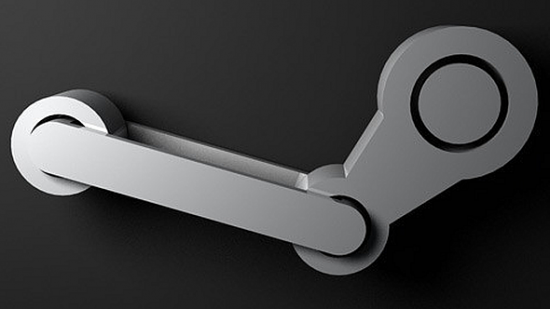Have you ever looked at the user reviews on Metacritic? It is quite the thing. According to them, a game is either a 10/10 or a 0/10. Every game is Marmite. This is the dichotomy that dominates the internet. We know this. Something can only be terrible or the best of its kind. We are talking about /user/ reviews specifically here, of course – professional review scores tend to fill out the middle ground between those extremes.
Related: the best PC games.
In the world of PC games we haven’t had to worry about the fact that the internet, and with it, the gaming audience at large, tend to deal in absolutes. That changed recently. Pop over to Steam and it won’t take you long to find a negative review from someone with approximately five million hours in a game. OK, maybe only a few thousand, but you get the idea. Their review will kick off with a big red thumbs down and then probably say something like, ‘This game was really good, but then it gets boring after a trillion hours’. If that review had been written on Metacritic it would probably be slapped with a 0/10, despite the person who wrote it probably spending more time in the game than the developers who made it – surely, it can’t be that bad?
These thoughtless, knee-jerk reactions can have negative consequences on game developers. That is a problem, and one that’s getting increasingly urgent. People tend to look at the aggregates and not read the context when browsing reviews of a new game they are looking to play. Nowhere is this more of an issue than in review bombing, which is a fairly new trend that sees people mob together and work to bring down the total rating of a game with a surgical strike of negative reviews. They do not come out of nowhere. Usually, it is in response to a specific change made to a game, perhaps the addition of microtransactions or any other controversial feature highlighted by the latest gaming drama – it is no wonder EA do not have a similar rating system on Origin. In a bid to affect the creator’s revenue, review bombers see the act as a form of protest, a way to put off anyone else who might buy the game.

One of the first cases of videogame review bombs I remember involved Skyrim. Valve and Bethesda introduced paid mods to the RPG, people got angry, review bombing happened, and then the paid mods were removed while people were refunded. Bizarrely, people got angry again shortly after – this time because the paid mods had disappeared (don’t try to understand that logic). Around the same time, indie boss-rush game Titan Souls came under attack because one of its developers printed out a Totalbiscuit tweet and put it on their fridge. No, really. Imagine saying that sentence out loud to a normal human being. Totalbiscuit said he didn’t like the concept of the game, one of the game’s developers said they didn’t care and printed out the tweet, then Totalbiscuit’s followers jumped onto Steam to tank the game’s user-review score. Meanwhile, we are all hurtling through infinite space on a ball of rock and one day the sun will kill us all.
The problem persists to this day. Some players use review bombing to exercise their right to protest content in games they do not agree with, such as PlayerUnknown’s Battlegrounds’ in-game advertisements of VPN services in China. You might agree that is a good enough reason for players to make a fuss – or, at least, to have a protest, if not necessarily review bomb, but needs must. However, review bombing is just as often used in illegitimate ways, to protest against actions taken outside of a game.

Look at the Firewatch debacle, in which developers Campo Santo hit YouTuber PewDiePie with a DMCA on his series of videos on their game after he used a racist word during a stream. Understandably, they didn’t want their game associated with someone who throws around racist language, but the YouTuber’s hordes of fans took to Steam to pull Firewatch’s user-review rating down as a way to hit back.
People are even review bombing games because of other, completely separate games. Dota 2 was hit with a wave of negative reviews because Valve fans were convinced it killed Half-Life 3. I love Half-Life and I’m not a fan of Dota at all, but really?
It is ironic. A lot of videogame fans talk about protecting a developer’s artistic vision – their freedom of speech – but it appears that some of those same people are the ones stamping their feet when a game does something they don’t like or disagree with, and they will keep stamping until it is changed. Remember all the noise around Mass Effect 3’s ending? Players who didn’t like it complained until the developers added new ones that pleased them. It is almost as if that was the droplet that became the sea we are currently drowning in.
Valve recently released a ‘fix’ for review bombing in the form of historical graphs that display a game’s user reviews over time. The idea is to let players see how the popular opinion of a game changes over time, and to also spot when a bombing run occurs, so they know to ignore it. But how many people are really going to start looking at graphs to inform their purchase?
It’s not just videogames where this is a problem, either. Fox News star Megyn Kelly’s memoir Settle For More released to a spate of negative reviews, seemingly from Trump supporters with a grudge. The book was bombed by one-star reviews within 24 hours and barely a fraction of them were from verified purchases.
It is reminiscent of how criticism levelled at Valve for not doing enough to combat review bombing has been labelled as “attacks by the SJW media.” But games such as Hatred get a free pass. That game was criticised for its politics at launch, yet its store page is completely unblemished. In fact, it has a ‘mostly positive’ rating on Steam, despite being a pretty terrible videogame even disregarding its questionable outlook. On the flip side, head to Gone Home’s Steam page, click the negative reviews dropdown, and it is filled with people calling it a game with an “SJW agenda,” or even saying it is not a game at all.

It is this mindset that saw Mass Effect: Andromeda release amid a wave of negativity. The game’s animations might have been pulled to the forefront of the discussion, but something else was there, bubbling beneath the surface. It was seen as a politically correct game, and this bizarrely led some fans to accuse BioWare of purposely making its women characters ‘ugly’ to appease the ‘SJW media’. Many also criticised it for its inclusion of non-hetorosexual relationships. BioWare are lucky the game wasn’t on Steam.
Until there are better tools to separate the legitimate complaints from the whingers, it is unlikely that this problem will go away anytime soon – particularly not with Valve’s preference for trying to solve problems with automated features. The company only really took action after Dota 2 was review bombed for supposedly killing off Half-Life 3 – do we have to wait for another Valve game to fall victim to this practice before a better solution is created? For now, developers will just have to hope customers are savvy enough to pull up a graph before buying.
